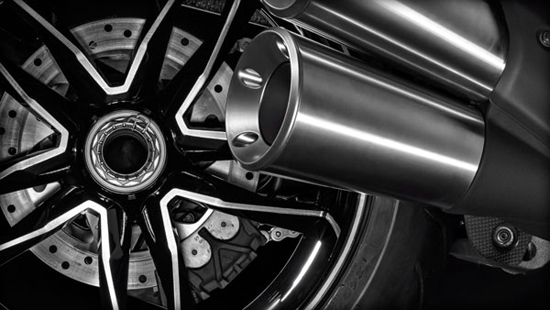While titanium is 60% more dense than aluminium, it’s more than twice as strong, as ThoughtCo. going on to note that while titanium’s strength is comparable to steel, it’s an impressive 45% lighter. Titanium also has a high corrosion resistance, making it ideal for a variety of applications. With titanium innovations flourishing in sectors from medicine to the automotive industry, here are just three interesting ways that titanium is changing the world — from the cars we drive to the technology we use on a daily basis — and even how we receive medical procedures.

Titanium in the automotive industry
The use of the material in the automotive industry is widespread. For instance, titanium can be found within the exhaust system of gas-powered vehicles thanks to its ability to dissipate heat better than steel in addition to being lightweight. Often, manufacturers also buy titanium sheet metal to produce lightweight yet durable automotive parts (in the engine, for instance, the application of titanium in springs can be used). However, the uses expand beyond that, as titanium can also be found in lithium-titanium anodes in electric vehicles, which can charge and discharge quickly. MIT’s Climate Portal notes that they are key components in many electric vehicle batteries, further citing that Tesla EVs also have a titanium underbody shield that works to protect against battery fires.
A variety of applications in the medical field
Much like the automotive industry, titanium application can also be seen in a variety of different ways in the medical sector as well. While titanium can allow for lightweight medical equipment (for instance, in the case of wheelchairs), it’s also known to be ideal for use in surgical implants. Titanium.org notes that titanium is “the most biocompatible of all metals due to its corrosion resistance, strength and low modulus,” further going on to note that the use of titanium has been well established in regards to implants for hip replacements and other joints for “some 40 years.”
To further highlight the value of titanium within the medical industry, Industry Today explains that titanium (in the form of titanium foam) can “now be injection-molded into spinal implants that replicate both the porous quality and mechanical properties of bone. These innovative implants are combined with a polymer instrument which not only improves the process of implantation but, because they are single use, also removes the need for labored sterilization procedures,” thus highlighting the material’s versatility.
Titanium in tech — and beyond
In addition to the application of titanium in the automotive and medical industries, the lightweight and strong material is also being used in modern technology. The flagship company Apple, for instance, is expected to reveal a redesign of the Apple Watch, with the “Apple Watch Pro,” reported by Bloomberg’s Mark Gurman expected to have a titanium casing. However, it’s not the only application of titanium in tech, nor is it a new idea. The use of titanium in accessories such as protective smartphone cases, smartwatches, and smartphones themselves can be seen in a variety of places likely due to the material’s attributes. In addition to the tech that we use in our daily lives, titanium can also be found in strong lightweight sporting goods (such as golf clubs), as well as eyeglass frames, making for both durable and lightweight everyday items. 5 Best Things notes that bicycles made with titanium frames are commonly used due to the advantages of being lighter and stronger when compared to steel and aluminum, allowing for longer lasting equipment.
Titanium possesses a number of valuable qualities, such as having a high corrosion resistance, low weight, and high strength. As such, this makes it ideal for a variety of applications — from medical grade implants to a car’s engine and beyond.
